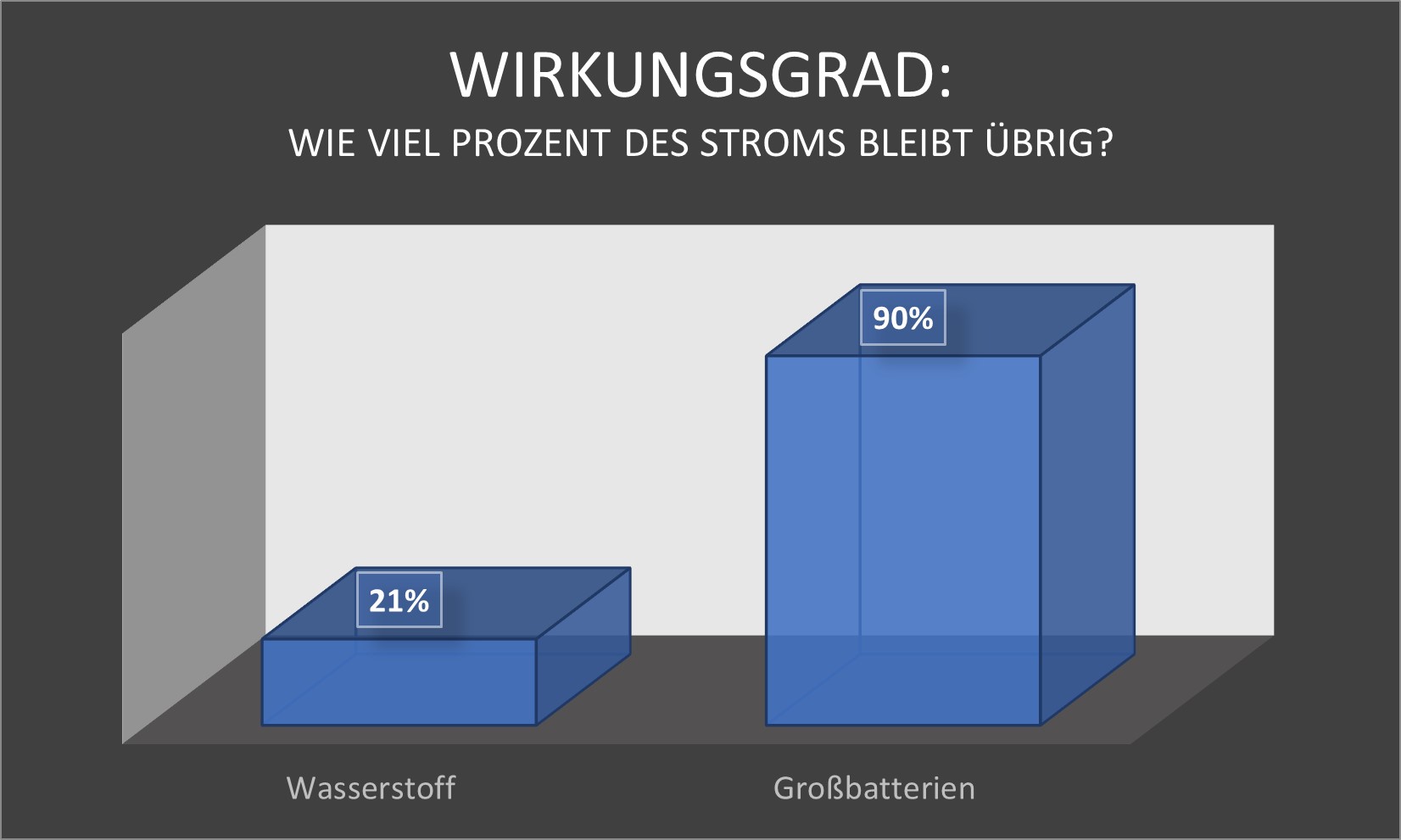The power plant strategy has increased the chance of an efficient technology mix: Gas and hydrogen for longer dark doldrums, large batteries for short-term demand.
The sun and wind traditionally lack consistency, which poses a major challenge for the energy transition: To compensate for daily fluctuations, Germany needs electricity reserves for at least two hours. This corresponds to a total of 160 gigawatt hours (GWh). Some experts even estimate up to eight hours (640 GWh).
There is no doubt that battery storage systems can meet this short-term demand better and at a fraction of the cost of H2-ready gas-fired power plants. This is because the production and reconversion of hydrogen into electricity is associated with high energy losses, with an overall efficiency of just 20 to 25 percent. This means:
More than three quarters of the electricity originally invested is lost – a huge waste of energy. Large batteries, on the other hand, achieve efficiencies of 90 percent. With storage periods of up to 1.5 days, which account for 70 percent of the reserve requirement, they are therefore far more efficient. Hydrogen only has an advantage from the third day onwards.
Fewer H2-ready gas-fired power plants planned
The optimum technology mix therefore looks like this: Hydrogen for dark doldrums lasting several days, battery storage for daily needs – especially to bring the sun into the night. For this reason, we welcome the fact that the German government’s new power plant strategy envisages fewer H2-ready gas-fired power plants than originally planned (at least for the time being).
This means that there is still an opportunity to establish a fruitful coexistence instead of building up expensive fossil fuel overcapacities. However, the regulatory framework for batteries now needs to be improved. Solar Package I, which is currently being debated in the Bundestag, offers the opportunity to do this – for example with regard to the exemption from construction cost subsidies, fast grid connections and the (physically mandatory) classification of storage electricity as green electricity.
Which gives hope: The Federal Ministry of Economics and the traffic light coalition seem to have understood that the energy transition will not work without large-scale storage systems. In addition, approval is growing in business and society. For example, Deutsche Umwelthilfe emphasizes that large-scale battery storage systems could “make a major contribution”. The German Renewable Energy Federation praises the lower capacities for H2-ready gas-fired power plants and “Stern” explicitly refers to “large-scale battery storage” .

